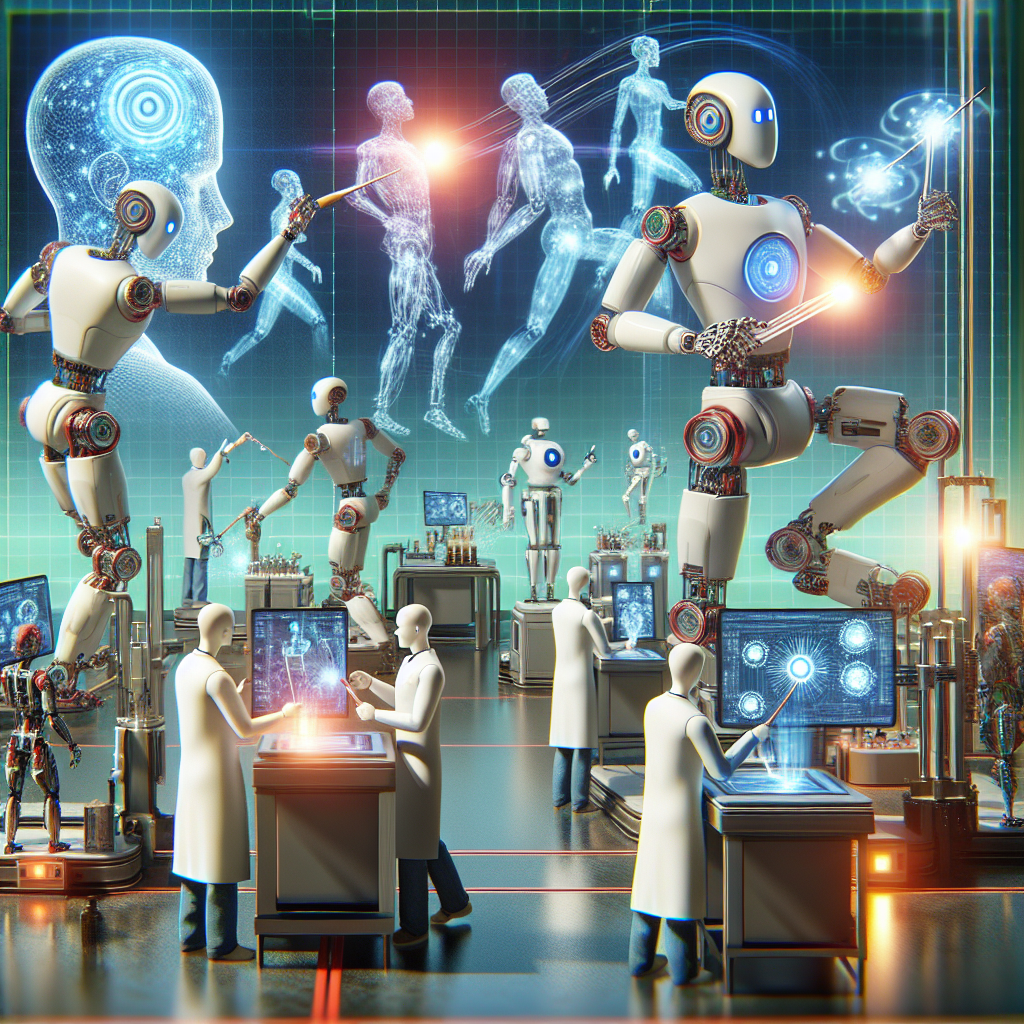Artificial General Intelligence (AGI) has long been the holy grail of the field of artificial intelligence. AGI refers to a form of artificial intelligence that can understand, learn, and apply knowledge in a way that is indistinguishable from human intelligence. While current AI systems are limited to performing specific tasks or functions, AGI has the potential to revolutionize the world of robotics and automation by enabling machines to think and reason like humans.
AGI is often compared to human intelligence in terms of its cognitive abilities. While current AI systems excel at tasks such as image recognition, natural language processing, and playing games, they lack the ability to generalize their knowledge and apply it to new situations. AGI, on the other hand, would be able to learn from experience, reason through complex problems, and adapt to changing environments.
The implications of AGI for the field of robotics are immense. With AGI, robots could be designed to perform a wide range of tasks with minimal human intervention. This could include everything from household chores to complex manufacturing processes. AGI-powered robots could also be used in fields such as healthcare, agriculture, and transportation, where automation could greatly increase efficiency and productivity.
One of the key advantages of AGI is its ability to learn and adapt to new situations. This means that AGI-powered robots could be trained to perform tasks that were not initially programmed into their systems. For example, a robot could be taught to recognize and respond to human emotions, or to navigate through a cluttered environment. This flexibility and adaptability make AGI a game-changer in the world of robotics.
Another important aspect of AGI is its potential to improve human-robot collaboration. While current robots are often limited in their ability to work alongside humans, AGI-powered robots could be designed to understand and respond to human behavior in a more natural and intuitive way. This could lead to greater efficiency and productivity in a wide range of industries.
Despite its potential benefits, AGI also raises a number of ethical and societal concerns. For example, there are concerns about the impact of AGI on the job market, as robots powered by AGI could potentially replace human workers in many industries. There are also concerns about the potential misuse of AGI for malicious purposes, such as autonomous weapons systems or surveillance technologies.
In order to address these concerns, it is important for researchers and policymakers to develop ethical guidelines and regulations for the development and deployment of AGI. This includes ensuring transparency and accountability in the design and implementation of AGI systems, as well as considering the potential impacts on society as a whole.
Despite these challenges, the potential of AGI to revolutionize the world of robotics is undeniable. AGI-powered robots have the potential to transform industries, improve efficiency and productivity, and enhance the quality of life for people around the world. As researchers continue to make advancements in the field of AGI, it is important to consider the ethical implications and societal impacts of this groundbreaking technology.
FAQs:
Q: What is the difference between AGI and other forms of artificial intelligence?
A: AGI refers to a form of artificial intelligence that can understand, learn, and apply knowledge in a way that is indistinguishable from human intelligence. Other forms of artificial intelligence, such as narrow AI or machine learning, are limited to performing specific tasks or functions.
Q: How close are we to achieving AGI?
A: While significant progress has been made in the field of artificial intelligence, achieving true AGI remains a challenging and complex task. Researchers continue to work on developing algorithms and technologies that can mimic human intelligence, but it is difficult to predict when AGI will become a reality.
Q: What are some potential applications of AGI in the field of robotics?
A: AGI-powered robots could be used in a wide range of applications, including household chores, manufacturing processes, healthcare, agriculture, and transportation. AGI could also improve human-robot collaboration and enhance the efficiency and productivity of various industries.
Q: What are some of the ethical concerns surrounding AGI?
A: There are concerns about the impact of AGI on the job market, as robots powered by AGI could potentially replace human workers in many industries. There are also concerns about the potential misuse of AGI for malicious purposes, such as autonomous weapons systems or surveillance technologies. It is important for researchers and policymakers to address these concerns and develop ethical guidelines for the development and deployment of AGI.

